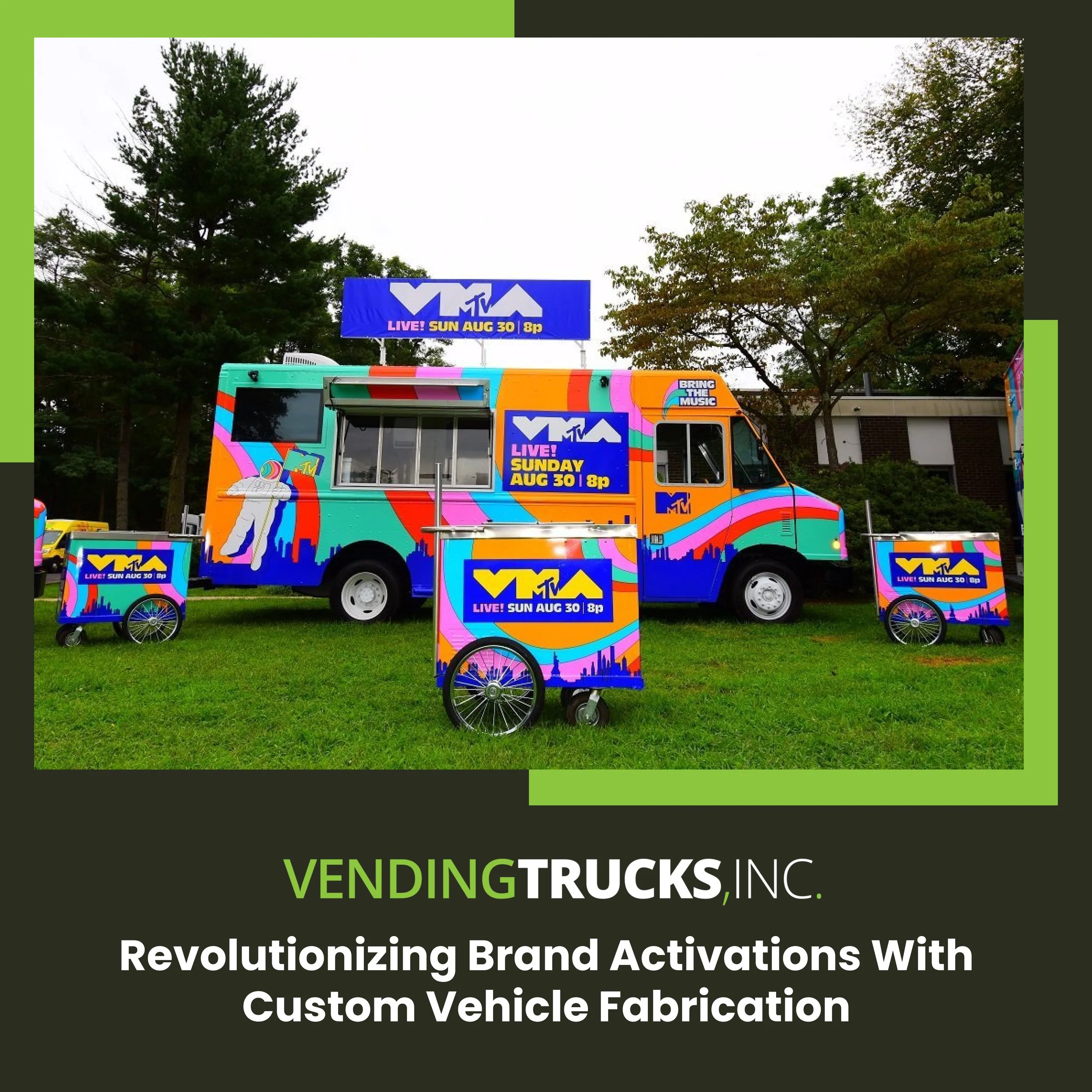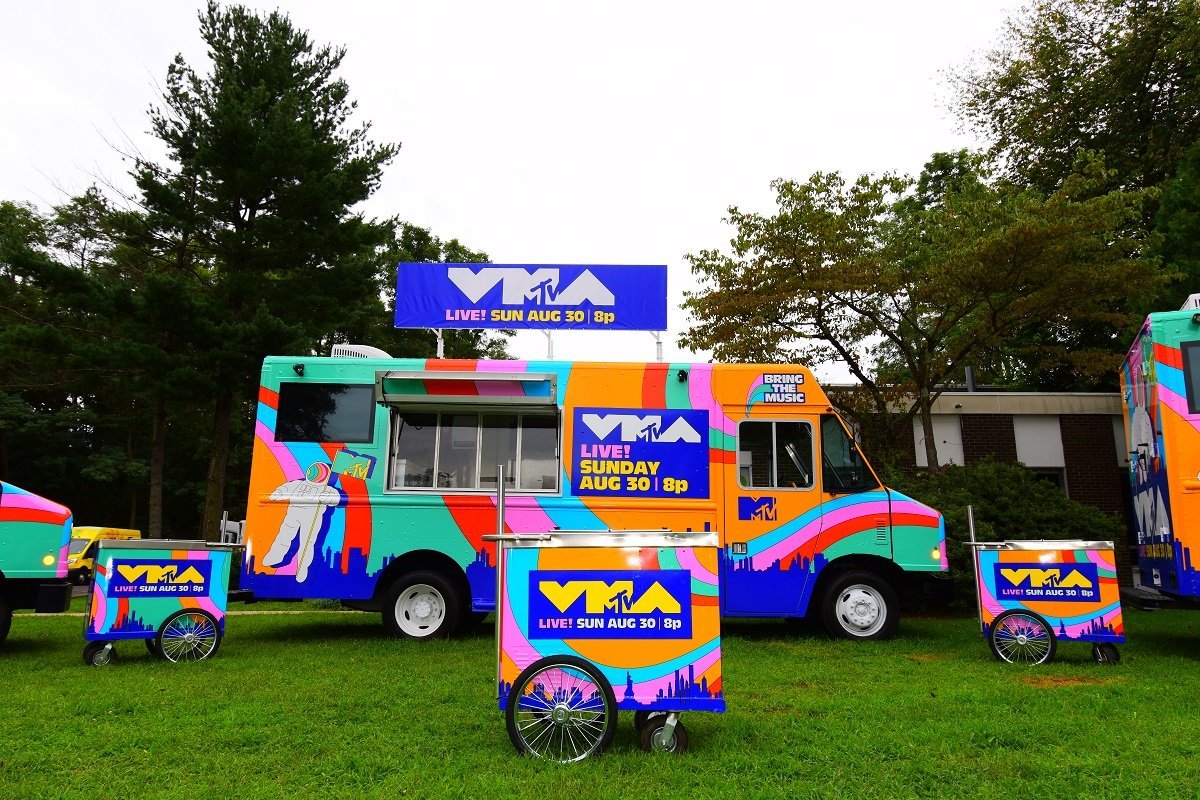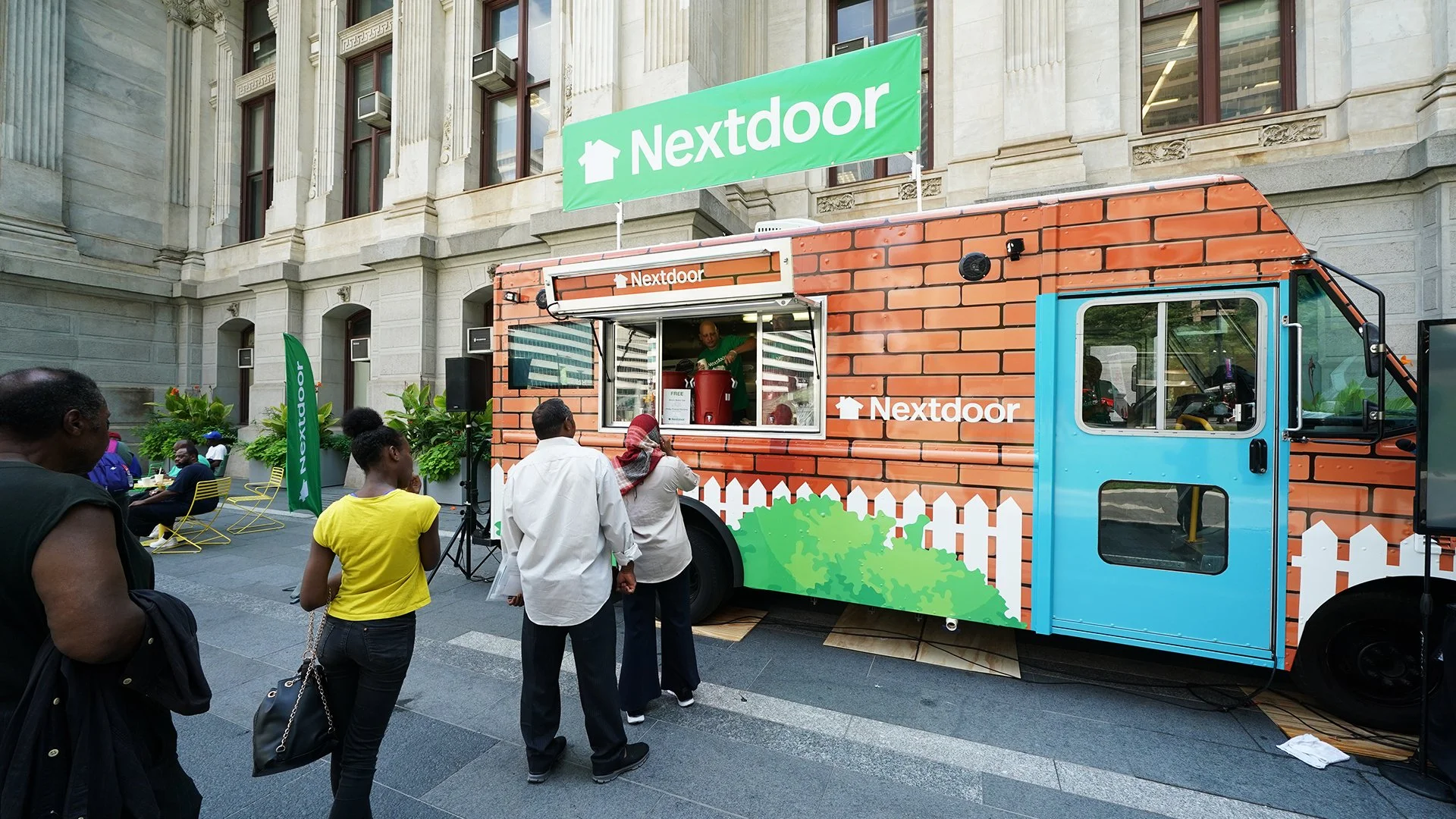Revolutionizing Brand Activations with Custom Vehicle Fabrication
Custom vehicle fabrication is changing how brands connect with customers. It creates unique, eye-catching mobile units that help brands stand out. This new approach lets companies engage customers in exciting ways, delivering experiences that stick in people's minds. By mixing creativity, technology, and mobility, custom fabricated vehicles are changing marketing strategies and how brands interact with their target audiences.
| Key Takeaways |
|---|
|
The Power of Mobile Brand Experiences
Mobile marketing platforms let brands go directly to their customers, creating memorable connections on the spot. Custom fabricated vehicles take this idea further, turning ordinary trucks or vans into amazing brand ambassadors that grab attention. These mobile units are flexible marketing tools, allowing brands to change their strategies for different places, events, and groups of people easily.
These custom vehicles do more than just look cool; they create experiences that stay with people long after the event is over. By offering a real, interactive way for brand engagement, custom fabricated vehicles can really boost brand awareness, loyalty, and emotional connection. For example, the NFL's Buffalo Bills used a custom vehicle to bring the excitement of game day directly to fans, creating a mobile activation that not only increased brand awareness but also got people excited for the upcoming season. This new approach allowed the team to reach fans beyond the stadium, connecting with them in their own neighborhoods and making them feel more connected to the team.
Types of Custom Vehicles for Brand Activations
There are many types of custom vehicles for brand activations, each with its own benefits. The choice depends on what the brand wants to achieve, who they're trying to reach, where the activation will be, and what kind of experience they want to create. Here are some popular types:
Sprinter and Promaster Vans
Sprinter and Promaster vans are becoming really popular for brand activations because they're versatile and have lots of space inside. These vehicles are a good size and can go to both city and country locations easily. The big interior space allows for lots of customization, so brands can create fully immersive environments with product displays, interactive screens, and even small lounge areas for more personal brand experiences. For example, a tech company might turn a Sprinter van into a mobile showroom, showing off their newest gadgets and letting customers try them out in different places.
Ice Cream Carts and Specialty Vehicles
For brands wanting to create a fun, approachable atmosphere or remind people of the past, ice cream carts and other specialty vehicles can work really well. These smaller, more playful units are great for giving out food samples, quick giveaways, or creating a fun, retro vibe at events. Their small size lets them move through crowded spaces easily, making them perfect for festivals, street fairs, and other busy areas. A makeup brand, for instance, might use a vintage-style ice cream cart to give out samples of their newest lip gloss flavors, creating a fun and memorable experience that fits well with their products.
Food Trucks and Catering Vehicles
Food trucks and catering vehicles offer a tasty way to engage customers, combining food experiences with brand messages. These vehicles let brands serve special menus that connect directly to their products or message, creating an experience that involves multiple senses and that customers are likely to remember. For example, a plant-based food company might use a custom food truck to offer tastings of their newest products, showing how versatile and tasty their offerings are while teaching consumers about the benefits of eating plant-based foods. These vehicles can also go to food festivals, corporate events, and other gatherings where food is important.
The Custom Fabrication Process
Creating a custom vehicle for brand activations is an exciting process that brings a brand's ideas to life through careful planning, skilled craftsmanship, and innovative design. The journey from idea to finished product involves several steps, each important to make sure the final vehicle perfectly represents the brand and meets its marketing goals. Here's a closer look at how the custom fabrication process usually happens:
Custom Vehicle Fabrication Process
- Initial concept and design
- Material selection
- Engineering and construction
- Brand element integration
- Technology installation
- Quality control and testing
The team at Vending Trucks works closely with brands throughout this whole process, making sure every detail is perfect, from the overall design idea to the smallest brand elements. Their expertise in custom fabrication allows them to overcome challenges and create truly unique vehicles that stand out in the competitive world of brand activations. By working closely with the brand's marketing team, the fabricators can make sure the final product not only meets but exceeds expectations, delivering a powerful tool for engaging with customers and creating memorable brand experiences.
Innovative Technologies in Custom Vehicles
Today's custom vehicles use cutting-edge technology to make brand activations more engaging and interactive. These high-tech additions not only grab attention but also create immersive experiences that really connect with modern consumers. Here's a look at some of the coolest technologies being used in custom vehicles:
- Digital displays and touchscreens for interactive experiences: These let brands show dynamic content, product information, and interactive games or quizzes that engage visitors and collect valuable data.
- Augmented reality (AR) setups for immersive product demos: AR technology can change the space around the vehicle, letting customers see products in real-world settings or interact with virtual brand ambassadors.
- Social media integration for real-time sharing and contests: Built-in social media stations or photo booths encourage visitors to share their experiences right away, spreading the reach of the activation.
- LED lighting for eye-catching nighttime displays: Advanced lighting systems can create stunning visual effects, making sure the vehicle remains a focal point even after dark.
- Internet of Things (IoT) sensors for data collection: These can track foot traffic, how long people stay, and other metrics to help brands improve their activations in real-time.
- Voice-activated features for hands-free interaction: This technology can provide information, control vehicle functions, or guide visitors through the experience.
- 3D printing capabilities for on-demand customization: Some vehicles now include 3D printers to create personalized giveaways or product prototypes on the spot.
These high-tech additions help brands create unforgettable experiences that get people talking and sharing online, extending the impact of the activation far beyond just the area around the vehicle. By using these technologies, brands can create experiences that involve multiple senses and leave a lasting impression on consumers, driving engagement, brand recall, and ultimately, business results.
Designing for Maximum Brand Impact
The key to a successful custom vehicle is making sure it really shows off and amplifies the brand's identity and message. This requires careful design, where every element is thought about to create a unified and impactful brand experience. Here are some important things to think about when designing a custom vehicle for maximum brand impact:
The outside of the vehicle should really catch people's eye, showing the brand's colors, logo, and key messages in a way that grabs attention and makes people curious. This might involve special paint jobs, big graphics, or even 3D elements that bring the brand to life. For example, a sports drink brand might create a vehicle shaped like their famous bottle, which people would recognize right away from far away.
But the inside design is just as important. It needs to work well for the activation team while still giving visitors an amazing experience. This balance needs careful space planning, thinking about comfort and ease of use, and clever storage solutions. The inside should also reinforce the brand story, maybe through themed decorations, custom fixtures, or interactive displays that show off products or services.
Creating "Instagrammable" moments is also really important in modern brand activation design. This might involve adding fun photo opportunities, interactive displays, or unique giveaways that people will naturally want to share on social media. For instance, a beauty brand might include a "selfie station" with perfect lighting and branded backgrounds, encouraging visitors to try products and share their looks online.
Also, the design should think about how visitors will move through the space, making sure there's a smooth and logical flow that guides them through the brand experience. This might involve creating different areas for different activities, such as product demonstration areas, sampling stations, or lounge spaces for more in-depth talks with brand representatives.
In the end, the goal is to create a fully immersive brand environment that engages all the senses and leaves a lasting impression on visitors. By carefully crafting every aspect of the vehicle's design, brands can create a powerful mobile marketing tool that not only attracts attention but also builds meaningful connections with their target audience.
Measuring Success in Mobile Brand Activations
To figure out how well a custom vehicle activation is working, brands need to track and analyze different key performance indicators (KPIs). These measurements provide valuable insights into how well the activation is connecting with people and driving business results. Here's a closer look at some important metrics and how they can be measured:
Key Points About Vending Trucks
- Vending trucks offer mobile food and beverage sales opportunities
- They provide flexibility to reach different locations and events
- Vending trucks can be customized for various product types
- Lower startup costs compared to traditional brick-and-mortar stores
- Require proper licensing and health department approvals
- Can target specific customer demographics in different areas
- Allow for menu changes and product testing
- May face parking and zoning restrictions in some locations
- Offer potential for brand visibility and marketing opportunities
- Require regular maintenance and cleaning to ensure food safety
These metrics help brands understand how well their custom vehicle is connecting with people and driving business results. By analyzing these KPIs, brands can gain valuable insights into the effectiveness of their mobile activations, identify areas for improvement, and make data-driven decisions to optimize future campaigns. It's important to note that the relevance of each metric may vary depending on the specific goals of the activation and the brand's overall marketing strategy.
Real-World Success Stories
Custom vehicles have helped many brands create exceptional activations that have significantly boosted their marketing efforts. These success stories show how versatile and effective custom fabricated vehicles can be in various industries. Let's look at some notable examples:
Nike partnered with NBA star Kyrie Irving for a mobile activation that generated huge excitement around a new shoe release. The custom vehicle, designed to reflect Irving's personal style and the shoe's unique features, toured different locations across the country. It offered exclusive merchandise, interactive basketball-themed games, and personalized shoe fittings. This activation not only increased brand awareness but also created a direct connection between the star athlete, the product, and the fans. The tour resulted in a big boost in pre-orders and social media engagement, with fans sharing their experiences and unboxing videos online.
In the food industry, Impossible Foods used a custom food truck to introduce their plant-based burgers to new audiences. The vehicle, designed to look like a futuristic kitchen on wheels, allowed people to taste the innovative product right on the street. This hands-on approach helped overcome doubts about plant-based meat alternatives and generated significant word-of-mouth marketing. The activation toured major cities and food festivals, serving thousands of samples and collecting valuable feedback that informed future product development and marketing strategies.
Another great example comes from the tech sector, where a leading smartphone manufacturer created a mobile showroom in a custom-fabricated vehicle. This high-tech space featured interactive displays, augmented reality demonstrations of the phone's capabilities, and one-on-one sessions with product experts. The vehicle traveled to college campuses, music festivals, and urban centers, allowing the brand to engage directly with their target demographic in environments where traditional retail experiences weren't possible. This activation not only drove sales but also collected valuable data on user preferences and behavior, informing future product designs and marketing campaigns.
These success stories highlight the power of custom vehicle fabrication in creating unique, memorable brand experiences that drive engagement, increase brand loyalty, and ultimately contribute to business growth. By bringing their brands directly to their target audiences in innovative and interactive ways, these companies were able to create lasting impressions that extended far beyond the initial activation.
The Future of Custom Vehicle Fabrication
As technology continues to advance quickly, we can expect even more exciting developments in custom vehicle fabrication for brand activations. These innovations promise to push the boundaries of what's possible in mobile marketing, creating even more immersive and personalized brand experiences. Here's a closer look at some of the trends and technologies that are likely to shape the future of custom vehicle fabrication:
- More eco-friendly materials and electric vehicle options: As sustainability becomes more important to consumers and brands, we'll see a shift towards using recycled and biodegradable materials in vehicle construction. Also, electric and hybrid custom vehicles will become more common, allowing brands to show their commitment to environmental responsibility.
- Advanced AI that personalizes the experience for each visitor: Artificial intelligence will play a bigger role in customizing interactions based on real-time data. For example, facial recognition technology could be used to tailor product recommendations or adjust the vehicle's interior ambiance to suit individual preferences.
- Virtual reality setups that transport people to entirely new worlds: VR technology will enable brands to create fully immersive experiences that go beyond the physical limitations of the vehicle. Visitors might be transported to virtual showrooms, product origin stories, or even fantastical brand-themed environments.
- Enhanced data collection to help brands understand their customers better: IoT sensors and advanced analytics will provide deeper insights into customer behavior and preferences during activations. This data will be invaluable for refining marketing strategies and product development.
- 5G connectivity for seamless digital experiences: The rollout of 5G networks will enable faster, more reliable connections, allowing for real-time streaming, cloud-based applications, and more sophisticated interactive elements within custom vehicles.
- Modular design for greater flexibility: Future custom vehicles may feature modular components that can be easily swapped out or reconfigured, allowing brands to adapt their activations quickly for different events or target audiences.
- Autonomous driving capabilities: As self-driving technology advances, we may see custom vehicles that can navigate to different locations on their own, potentially expanding the reach and efficiency of mobile brand activations.
- Holographic displays and projection mapping: These technologies will create stunning visual effects both inside and outside the vehicle, offering new ways to showcase products and create immersive brand environments.
These innovations will help brands create even more impressive and effective mobile activations in the years to come. As custom vehicle fabrication continues to evolve, it will offer unprecedented opportunities for brands to connect with their audiences in meaningful and memorable ways, driving engagement and loyalty in an increasingly competitive marketplace.
Conclusion: Driving Brand Success with Custom Vehicles
Custom vehicle fabrication revolutionizes brand marketing by creating standout mobile experiences that forge meaningful consumer connections. The most successful activations combine thoughtful design, innovative technology, and shareable moments that extend reach beyond physical presence.
Data-driven measurement allows brands to refine their approach continuously, while the inherent flexibility of mobile platforms makes these vehicles powerful marketing assets. As technology advances, custom vehicles will offer increasingly personalized experiences through AI and virtual reality.
By embracing custom vehicle fabrication, brands can elevate awareness, engagement, and loyalty in today's competitive marketplace. These mobile activations blend creativity with functionality to create lasting impressions that drive brand success.
Ready to take your brand on the road? Explore custom vehicle fabrication options and start planning your next groundbreaking brand activation today!






